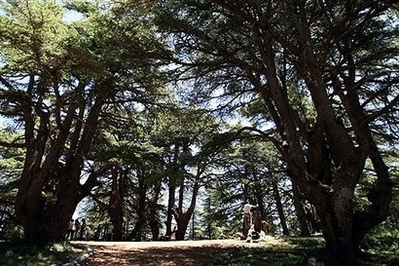 by Rana Moussaoui AYTARUN, Lebanon (AFP) – The large building near the border with Israel was already earmarked to be a green pioneer in Lebanon when it was blown apart by two missiles during the short sharp summer war of 2006. Now the demolished building has been rebuilt — and with it a ground-breaking environmental project has risen from its own ashes. In a country with serious waste management problems, the war-ravaged small town of Aytarun in the south lies in the vanguard of recycling, setting an example it is hoped will be followed by others. Located just metres (yards) from the frontier, Aytarun was devastated by the 34-day war two years ago. On the village’s edge is the Centre for Solid Waste Management a 700-square-metre (875-square-yard) structure rebuilt with Italian assistance after the conflict.
by Rana Moussaoui AYTARUN, Lebanon (AFP) – The large building near the border with Israel was already earmarked to be a green pioneer in Lebanon when it was blown apart by two missiles during the short sharp summer war of 2006. Now the demolished building has been rebuilt — and with it a ground-breaking environmental project has risen from its own ashes. In a country with serious waste management problems, the war-ravaged small town of Aytarun in the south lies in the vanguard of recycling, setting an example it is hoped will be followed by others. Located just metres (yards) from the frontier, Aytarun was devastated by the 34-day war two years ago. On the village’s edge is the Centre for Solid Waste Management a 700-square-metre (875-square-yard) structure rebuilt with Italian assistance after the conflict.
The centre refuses to dump any waste at all. "Everything is recycled, nothing is thrown away," says Ziad Abichaker of Cedar Environmental, a group that specialises in recycling technology. "We wanted to create the example of a rural town which not only gets rid of its waste but also uses it to benefit organic agriculture. "Some things are stored as we research and develop outlets for them," Abichaker adds, saying shoes can be used in a special cement for the manufacture of public benches. The facility’s five employees patiently sort through potato peelings, plastic bottles and old clothing before recycling proper can begin. In many rural areas of Lebanon municipalities burn solid waste, causing an unbearable stench and often sparking wildcat forest fires. "People did not like the smell of burning rubbish. This project is a blessing for them," Abichaker says of the traditional method of incineration. Sawsan Bou Fakhreddine of the Association for Forests, Development and Conservation says domestic waste forms 90 percent of all the country’s rubbish.
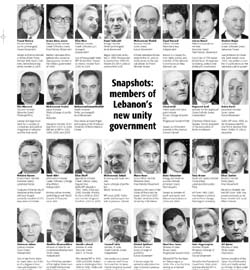 By Hussein Abdallah, BEIRUT: Lebanon announced a 30-member national unity government on Friday after almost five weeks of disputes over the distribution of portfolios. The lineup was announced in a decree signed by President Michel Sleiman and Prime Minister Fouad Siniora following a short meeting between them and Parliament Speaker Nabih Berri. The formation of the Cabinet came in line with the accord sealed in Doha on May 21 which allocated 16 cabinet seats to the parliamentary majority, 11 to the opposition, and three to the president.
By Hussein Abdallah, BEIRUT: Lebanon announced a 30-member national unity government on Friday after almost five weeks of disputes over the distribution of portfolios. The lineup was announced in a decree signed by President Michel Sleiman and Prime Minister Fouad Siniora following a short meeting between them and Parliament Speaker Nabih Berri. The formation of the Cabinet came in line with the accord sealed in Doha on May 21 which allocated 16 cabinet seats to the parliamentary majority, 11 to the opposition, and three to the president. 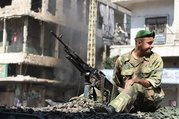 by Omar Ibrahim
by Omar Ibrahim 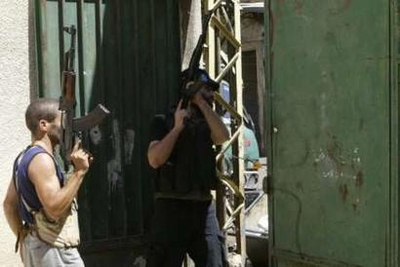 by Omar Ibrahim
by Omar Ibrahim 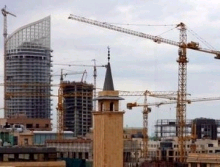 BEIRUT: Lebanon expects over 1.3 million tourists this year thanks to the positive political atmosphere following the election of a new president, outgoing Tourism Minister Joe Sarkis said Friday. The minister made the remarks during a tour of Rafik Hariri International Airport, adding that most of the hotels in Beirut and the mountain are fully booked. According to the figures released by Rafik Hariri International Airport, arriving passengers totaled 598,392 in the first five months of the year, while departing passengers amounted to a higher 633,255.
BEIRUT: Lebanon expects over 1.3 million tourists this year thanks to the positive political atmosphere following the election of a new president, outgoing Tourism Minister Joe Sarkis said Friday. The minister made the remarks during a tour of Rafik Hariri International Airport, adding that most of the hotels in Beirut and the mountain are fully booked. According to the figures released by Rafik Hariri International Airport, arriving passengers totaled 598,392 in the first five months of the year, while departing passengers amounted to a higher 633,255. 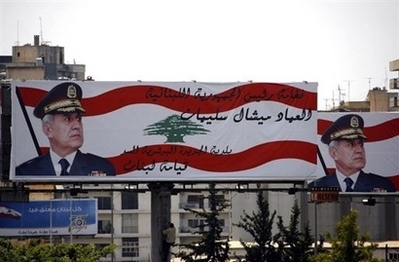 Lebanese President Michel Suleiman has set July 9 as a deadline to conclude the formation of a new government in the country, well informed sources were quoted by Xinhua news agency. The president is due to leave for Paris on July 12 to participate in the international conference on Euro-Mediterranean cooperation, the report added, hinting that a new government should be formed before the president leaves. Over five weeks have passed since designated-Prime Minister Fouad Seniora was assigned by the president to form a national unity government, but all efforts were fruitless as Lebanese leaders were unable to reach an agreement on the cabinet line-up.
Lebanese President Michel Suleiman has set July 9 as a deadline to conclude the formation of a new government in the country, well informed sources were quoted by Xinhua news agency. The president is due to leave for Paris on July 12 to participate in the international conference on Euro-Mediterranean cooperation, the report added, hinting that a new government should be formed before the president leaves. Over five weeks have passed since designated-Prime Minister Fouad Seniora was assigned by the president to form a national unity government, but all efforts were fruitless as Lebanese leaders were unable to reach an agreement on the cabinet line-up.  KFAR ZABAD, Lebanon (AFP)
KFAR ZABAD, Lebanon (AFP) 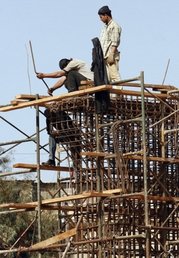 BEIRUT (AFP) – The Ottoman-style mansions, with Venetian windows, arches and lavish gardens that once epitomised
BEIRUT (AFP) – The Ottoman-style mansions, with Venetian windows, arches and lavish gardens that once epitomised 


